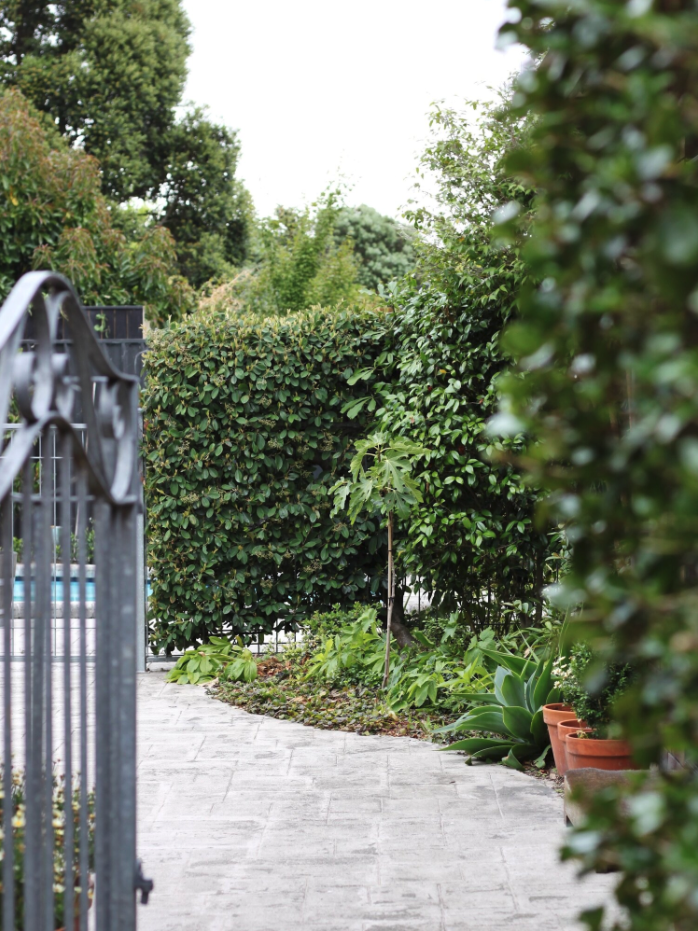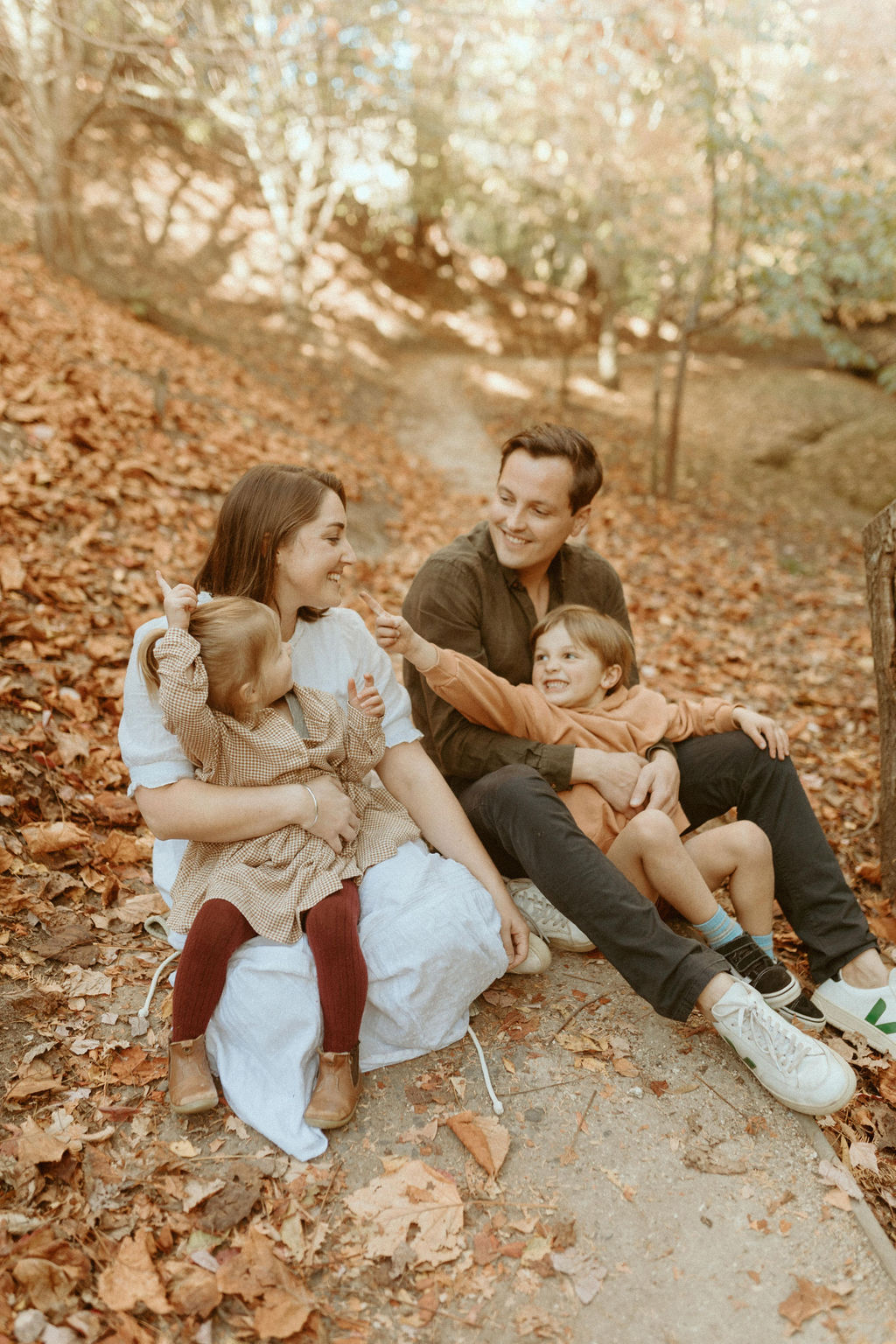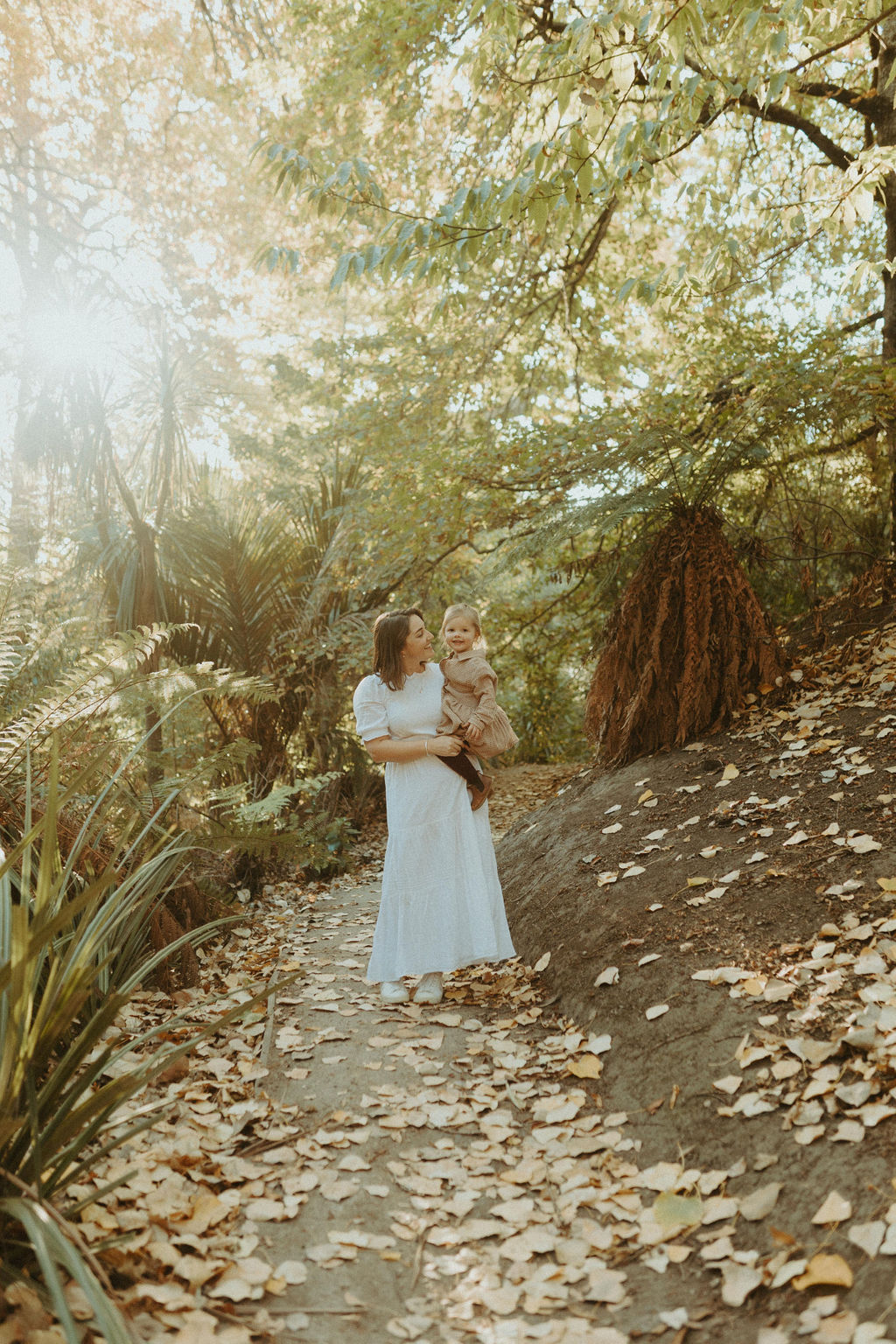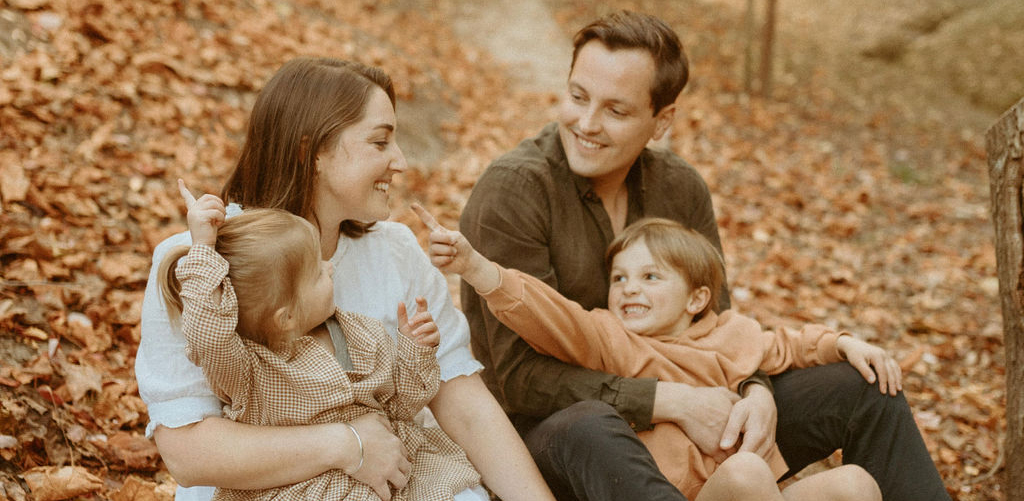
23 Sep Field Notes: Emma Sage
Emma Sage is the founder and editor of Sage Journal, an online magazine devoted to landscape design and home gardening. She’s an alumna of the Internship (2010/11) and is married to fellow alumnus, Tristan Sage (Intern, 2009/10). They live in Havelock North in the Hawke’s Bay with their two children, Albie, 4, and Augusta, 2, and Emma is pregnant with their third child. Here, Emma discusses some of the impetus behind launching Sage Journal and what gardening tells us about God and faith.
Tell us about yourself—where did you grow up and how did that shape your love of gardening and landscape design today?
I grew up on a farm out of Hastings but went to high school in Havelock North. My dad is a fifth generation farmer on our sheep and beef farm, and my brother is sixth generation to be on the farm. Back when I was young, I didn’t always love it. As an extrovert, I found it boring and I wished I lived in town close to my friends. I don’t think I was a typical farm kid who loved getting out into nature but now I look back and I’m so grateful for the space and the time and the land.
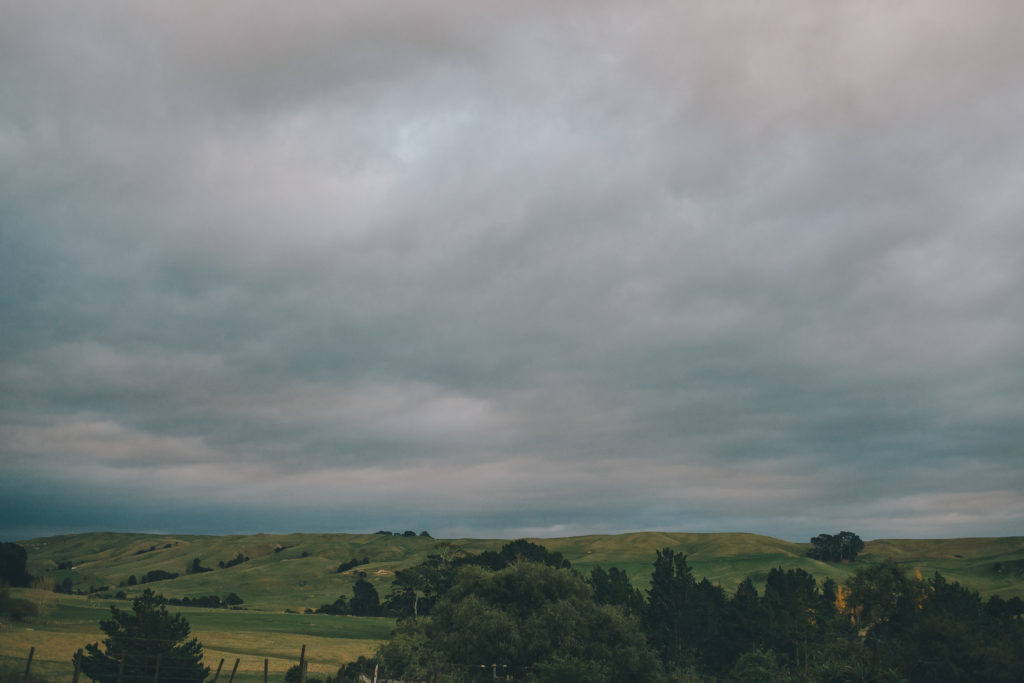
I’ve always had an interest in design, whether it was interior design, landscape design, architecture, or graphic design. And I have always had an interest in writing and communications. After high school, I considered doing a design degree—I was choosing between that and marketing. To appease the commerce-loving side of my brain, I chose the latter and have been able to combine working with businesses, alongside working with designers, design agencies, and working in brand management. The best of both worlds. I went to Victoria University in Wellington to study and met Tristan while at university—he was living in Christchurch at the time.
At the end of my degree, I went up to Auckland to do the Maxim Internship during the summer of 2010, which was really formative for me. I just loved being part of such an encouraging group. I was quite ‘disillusioned’ with church at the time, so we talked a lot about that. I had come from a Pentecostal church and I felt like I’d been reduced to the essence of my extroverted personality and was just a young girl who could do a good job of bringing people in the doors and communicating. I felt liberated going to Maxim, being able to use my brain, chew the fat, talk through ideas and ask questions, and not be shut down. I also did a bit of writing with Annette Pereira, who gave me some encouraging feedback which boosted my confidence in my ability to write, and still carry it with me now.
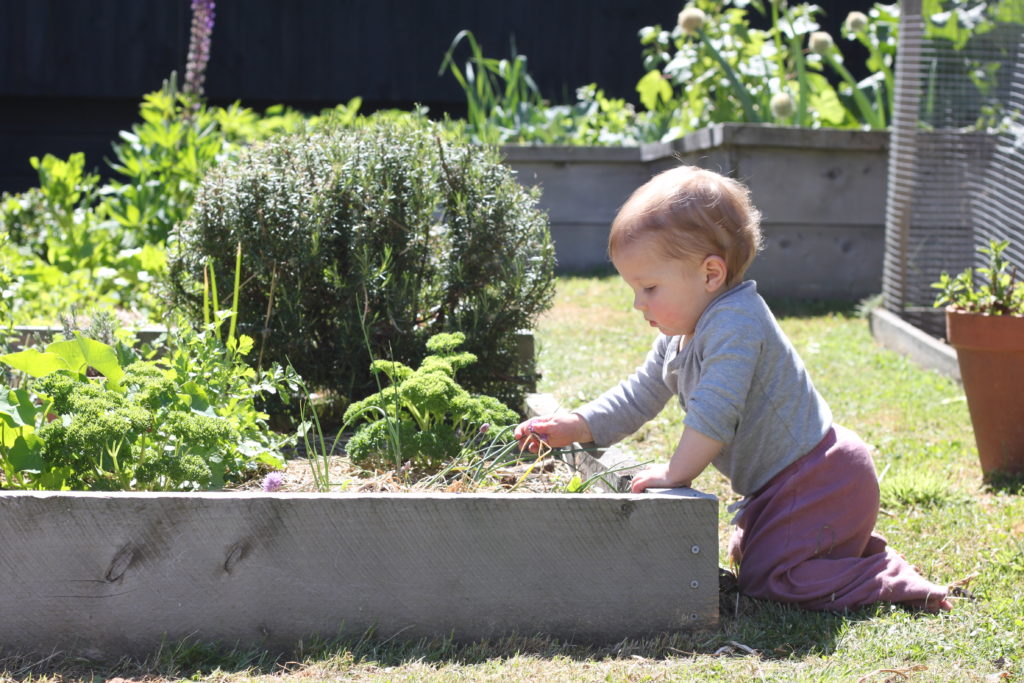
You then moved down to Christchurch to be with Tristan. This was during the summer of the Christchurch earthquakes—what was it like moving to Christchurch in the wake of such devastation?
I was about to fly down when the February earthquake happened; I moved down a week later. Surprisingly, I found a really good job quite quickly and moved in with some friends. It was actually the most amazing time because there were no bars or restaurants or anything to go to. So you’d go to peoples’ homes with a bottle of red wine and get to know them really, really well because you weren’t just chatting at a bar. We made some good friends really quickly there.
Christchurch is the Garden City and once the conversations around the rebuild started, I was so excited about the possibilities for edible areas and community gardens. Even before the rebuild started, people were setting up community gardens for people in the red zone. Houses in several of the eastern suburbs were being bowled, but all of the trees were left and people were able to go out there and forage for food—chefs from around Christchurch, and people like you and me. These areas of dense housing have become huge parklands, but peoples’ lemon trees and guava bushes and shrubs are still there. People could go back to their old sections, and say, “That was my lemon tree” or “We used to climb on that.” Florists forage flowers and foliage there. It’s pretty amazing. And it’s so nice that 10 years on, it’s still there.
I can’t speak for the people who lost their homes, but I do remember people talking about how lovely it was to go back and visit their childhood trees and sections. I also think there’s something so fundamental about going to pick and forage your own food, and respecting the land that it came from. Not just pillaging it all, but taking what you need. Where else in the world can you just go and pick what you need? It’s unheard of. That’s why for me, there’s something so profound about growing your own lettuce or growing your own flowers or feeling that you’re part of what God is doing. For me, when I look at new growth in plants, or soil and worms, or flowers, or spring bulbs, or leaves falling… I just think that, that’s God. It’s the cycle of life, and it’s all part of God’s plan. It’s incredible.
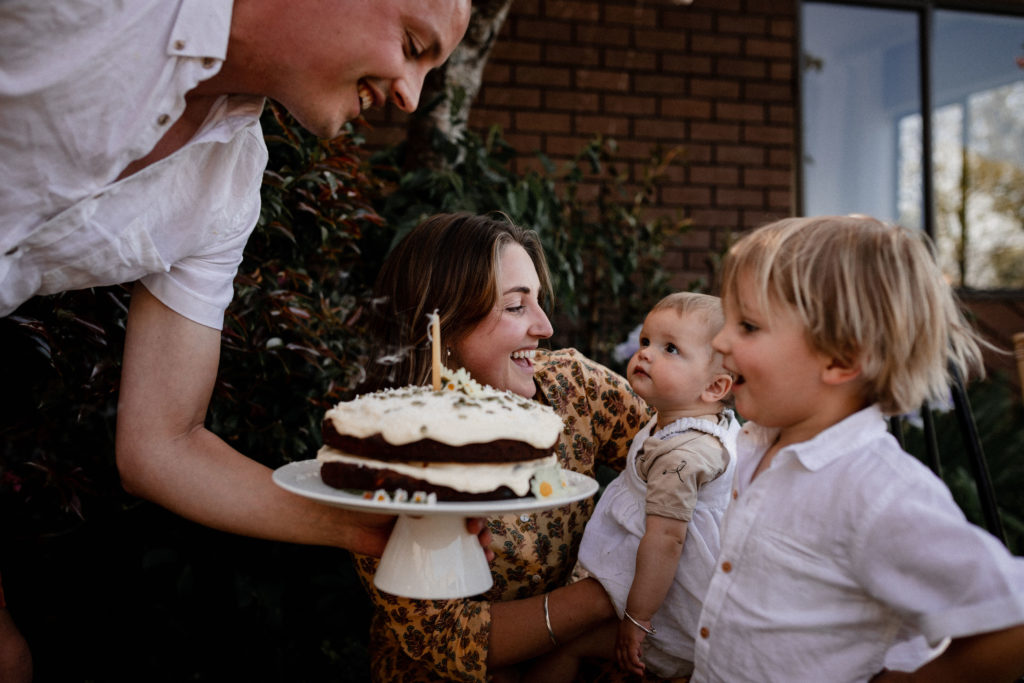
Tell us about your journey into gardening and horticulture. When did that start for you?
I dabbled a little in planting pots at my flat in Wellington, but it wasn’t really until Tristan and I got married and moved into our own place—we set up two veggie potagers and planted up several pots in herbs. By the time we bought our first home in Christchurch I realised how much I love developing gardens and outdoor spaces, and how much they enhanced a home and peoples’ lives. All of a sudden, the passion that my mum and my grandparents had for gardening all kind of came flooding back to me.
I started to wonder if many people didn’t really know how much this could benefit their lives. Everyone’s busy buying the latest indoor trends, having fancy houses, and renovating. But then you see their houses listed on Trade Me, and their garden is a piece of grass and a hedge—it would only take a little bit of effort to put in a seating area, or a veggie patch, or just interesting design outside.
Having your own garden is beautiful, and it feels good to cultivate things, to grow things. You watch birds and bugs come; it’s living, so it keeps growing and changing. If you buy a new cushion for your couch and you’re sick of it six months later, you get rid of it and buy a new one whereas, if you put a tree in, it’ll grow for your entire life-time and change—kind of with you, which is cool.
It’s nice to work on your outside space, no matter how small it is. It could be a tiny courtyard, but it can be an extension of your home and an extension of your life.
What has working with the land taught you about God and faith?
It was Autumn during the first lockdown, and I remember thinking, “Well, nature stops for no one!” The trees were changing, the leaves were falling, the weather was getting colder, frosts were starting. We might have all been locked down, but nature just carries on. And during that time we had the privilege of taking more notice, which we never really get the chance to do.
It’s so easy to be ‘busy.’ I feel ‘too busy’ a lot of the time. But, for me, gardening is one of the only times that I stop; I’m present. Time goes by without me thinking about what’s next. When gardening, you can’t be checking your phone, instead you’re noticing what’s going on, like new growth or something dying and then emerging again.
I do often think about how we’re called to tend to the earth. I think God would find significance in us just tending to the little patch that we have—the 200, 600, 900 square metres, the deck, or the porch. I think God would honour that, that he would think it’s beautiful. I don’t get sentimental about a lot of things, but sometimes I’ll walk through nature or be in my garden and enjoy watching things grow and flourish. It’s amazing. I think God would love that we find joy in his world.
You’ve been able to translate this love of cultivation and gardening into a beautiful online magazine, Sage Journal. Tell us more about that.
As my passion grew around gardening and landscaping, I desperately wanted more people to see that it’s easy and they can also do something. My passion is partly from a sustainability and environmental point of view—you can plant a flower plant, and you’ll have bees come in, or you can plant a tree that tūī love. I love the feeling that I’m contributing something.
And then there’s just the general enjoyment of it: being able to sit outside with a glass of wine. You know, some of the best conversations I’ve ever had have been sitting outside on a summer evening, on a patio somewhere, with trees around. Feeling safe, secluded, and part of nature but with the comfort of wine, kitchens, and flushing toilets!
So, I got more passionate about communicating this. Just before I had Albie, I’d moved into a freelance marketing role and the nature of that work was more writing focused. So I’d been doing a lot of writing. And then after I had Gussie, I decided I really wanted to launch… whatever this thing was, this gardening thing! I looked into creating an online shop, but that wasn’t really my passion. My passion is more communication, design, and photography. I wanted to capture and share stories of people and places found within the green spaces of Aotearoa.
I started writing for magazines and focusing on gardens. I launched Sage Journal during the first lockdown, winter 2020, as the first of seasonal editions. There’s also the monthly gardening guides, which bring a lot of enthusiast gardeners in.
The long-term goal is to grow the number of people writing for the journal and helping with the content, so I can continue to focus on the overall vision and strategy. There are lots of plans and goals in the pipeline, but perhaps we’ll wait until after our next baby is born!
I just want to inspire people that they can do stuff outside their house. They don’t just have to paint their walls white inside, and have the latest couches or rugs or whatever it is. You can do that, but you can also plant a tree and watch it grow. Or grow some flowers, or grow your own vegetables. It’s especially important at the moment, when people are in lockdown. I mean, how amazing would it be to have an incredible, abundant vegetable garden or a pot with a few herbs and a few lettuces. When you don’t have ready access to a supermarket all the time, or you don’t want to go to go out, it’s so lovely.
There’s a lot of ‘strings to your bow’—you’re a marketer, a writer, a mother, a gardener. How do you understand your sense of vocation?
I saw this question before the interview, and thought, “I honestly have no idea!” I need to come back to one of Venn’s programmes to talk about it! I’m a mum, I run an Airbnb, I write, and I do Sage Journal, and I run a household. I guess the main thing for me at this stage is raising good humans who want to be connected in this world. I don’t think many of us feel like good mums all of the time. But sometimes I think about our garden and how much gardening we do with the kids, and I think, “Well, surely that will be teaching them some good stuff.” The importance of caring for the world around us; creativity, play and gathering; and working towards fostering a reweaving of the planet and its people.
In saying that, I do feel a sense of purpose in all my work—I loved working full-time and achieving lots, and being a mum carries such a deep responsibility and sense of purpose, and I love doing it.
It’s about finding joy in what you’ve got. And for me, one of those things is the garden. I just want to tell people that you can find joy in that space too because I think lots of people don’t think about it. People are starting to wake up to it now, and ask, “Well, how do I do it? How do I grow a garden, how do I even start?” And that’s what I would love to help people in, inspire people in.
(Images: Supplied and © to Emma Sage, 2021)


